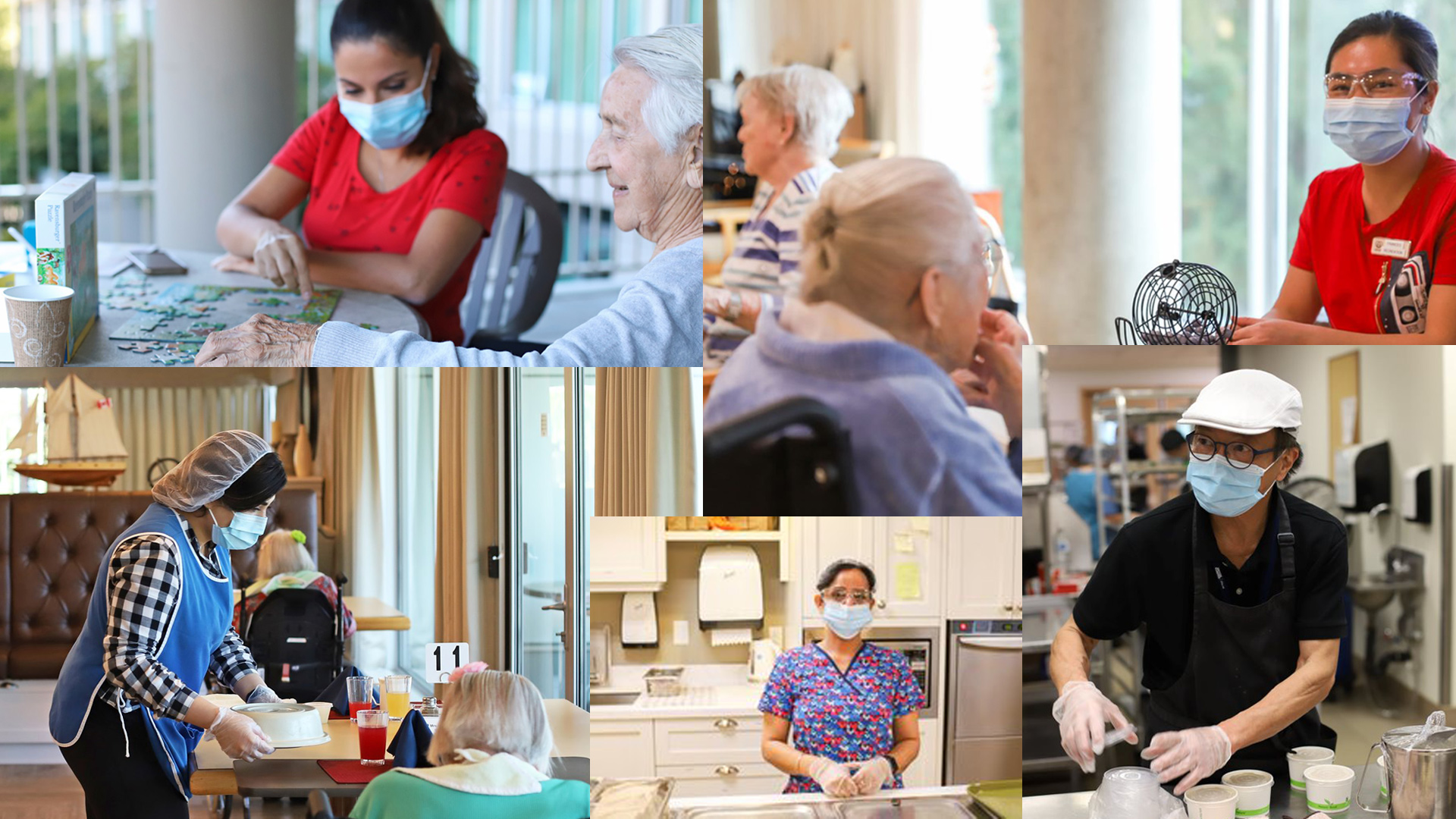On the afternoon of Thursday, March 5, 2020, a call came into Lynn Valley Care Centre (LVCC) from the regional licensing manager from Vancouver Coastal Health (VCH) assigned to the care home. What was said on that call would ultimately become a deadly turning point for public health in Canada.
The health authority representative notified the care home that a nurse who worked at the centre had tested positive for COVID-19.
The disease known as COVID-19 caused by a new, highly infectious coronavirus, had only made its first appearance on Canadian soil six weeks earlier. On that fateful afternoon in early March the general public understood little about the virus. Few knew, for example, how someone infected by it could shed the virus (also known as SARS-CoV-2) for days before showing any symptoms of illness. It is now known that as many as one-third of people infected by the virus remained asymptomatic but were still able to spread the disease.
The nurse who had tested positive served her last shift in the care home on February 29th — five days earlier. On March 5th neither staff nor residents at LVCC were reporting any indications of illness. It was that day when public health officials immediately began their tracing protocol to determine who the nurse had come in contact with.
Arrangements were made with the health authority, and the next morning four members of the VCH public health team arrived at LVCC. They proceeded to lay out an action plan in response to the potential exposure to the coronavirus.
A pair of letters prepared by the officers from Public Health were circulated — one to staff and the other to residents and their family members — notifying them that they might have been exposed to the virus and gave instructions on how to monitor for symptoms. From that day forward and throughout the duration of their COVID outbreak, LVCC management staff would meet every morning with Public Health team members, and a VCH residential care manager was actively involved in planning and executing measures to fight the spread of virus.
On the evening of March 6th – only 24 hours after becoming aware of the positive test for a staff member – a resident of the long-term care home fell ill in the first apparent case of COVID-19 of an elderly long-term care home resident.
As the weekend began, VCH’s infection control team worked to support anxious members of LVCC’s care staff as they all tried to prevent the spread of the invisible threat.
Then the unthinkable happened. At around 2am on the morning of Sunday, March 8th – not long after the start of the night shift – a phone call came into LVCC’s switchboard. The caller claimed to work for the B.C. Centre for Disease Control, and he gave specific instructions to staff that were onsite not to leave at the end of their shift, and to notify the nursing and care staff on the next shift to not come into work.
At this hour it was impossible to verify the caller’s identity through the public health office right away. In the meantime, LVCC’s shift manager and night staff had communicated about the call to their families and co-workers who had to relieve them in the morning. As a result, the fear caused by the caller made staff not to come to work in next coming shifts.
The management team and remaining staff scrambled for the next 24 hours to serve meals or provide toileting assistance and attending to those with the most urgent needs.
This difficult moment in time was widely reported by the media. What was not reported to the public at the time, was the fact that the lack of staff resources had been caused by a criminal act executed by a lone perpetrator. An RCMP investigation eventually tracked down and arrested the caller, who now has been charged and is awaiting his day in court. The caller’s motivation for making the call is still unknown.
Short-staffed and under duress, the team at LVCC had performed bravely.
The worst news of all came near the end of that stressful Sunday. On the evening of March 8th, the first person in Canada to fall ill from COVID-19 in a long-term care home had died.
It would only be the beginning of the care home’s tragic encounter with the disease. For weeks COVID-19 would ravage the people at LVCC, infecting a total of 76 staff and residents, and ultimately took 20 lives.
The outbreak was finally declared over on May 6th. Now well into the second wave of the pandemic LVCC has remained free of any new positive cases among the staff or residents.
Lessons from LVCC’s COVID outbreak
“It’s not over yet.” That’s what Noori Shahkar, LVCC’s Administrator and Environmental Safety Coordinator says about the COVID public health emergency. BCCPA spoke with him earlier this week about how the outbreak has impacted the care home.

“It’s not the same now, when you have to wear a mask and goggles all day,” says Shahkar. “It affects how you interact with residents and not in a positive way.”
“Someday we might celebrate the end of the pandemic, but only when we can finally put the masks and goggles away.”
Shahkar’s pathway to becoming a leader in B.C.’s healthcare system is unique. Earlier in his career he worked in Iran’s oil fields. Upon coming to Canada, Shahkar worked in the security industry, eventually training in healthcare management before becoming a proud employee in B.C.’s continuing care sector.
Asked what kept him going during the most difficult times of the COVID outbreak, Shahkar responded “it was the fact that people need us.”
“There are times you want to cry, but then you see what others are going through. You have to keep going because you have so many people needing you to help them. Our staff have all made sacrifices, and we all went through this together.
“For every story I have, my staff have several painful stories to share.”
Lynn Valley Care Centre began operations known as North Shore Private Hospital, a family-owned for-profit long-term care home that has served the community for over 50 years. Throughout the pandemic the term “for-profit” has been a lightning rod for critics of Canada’s system for long-term care. But Shahkar insists the owners are always re-investing the profit in order to improve the quality of service in the Care Centre.
“The dollars stay in the home, such as developing the new building and trying to maintain our older building.”
LVCC currently has 195 beds. They consist of both government funded and private pay beds. The demand in both cases has been decreased due to the pandemic, and the reluctance of clients to be admitted to a long-term care setting.
As with other operators, Shahkar says the workload and cost of running the care home has increased significantly due to the pandemic. He estimates the first 3 months alone drove costs up by several million dollars due to increased overtime resulting from the single site order, wage leveling for staff, temporary pandemic pay, inflated expenses for PPE and the requirements for deep cleaning. While most of these costs are ultimately covered by the government health authority, many operators are still struggling with the bill for overtime.
When asked for what stood out in his mind about his experience during last year’s outbreak, Shahkar pauses to think about his answer.
“[COVID] is such a cruel way to lose people. One day we were short-handed, so I went on the floor to serve food to residents. I spent time speaking to one gentleman about his family. He was alert and appeared to be fine to me. The next day he was gone. That sticks in my mind.”
“I think COVID-19 has changed long-term care forever,” adds Shahkar. “All of us have to learn from what we have gone through during this crisis, so it never happens again.”
—
Feature photo (above): images of front-line staff provided by Lynn Valley Care Centre





